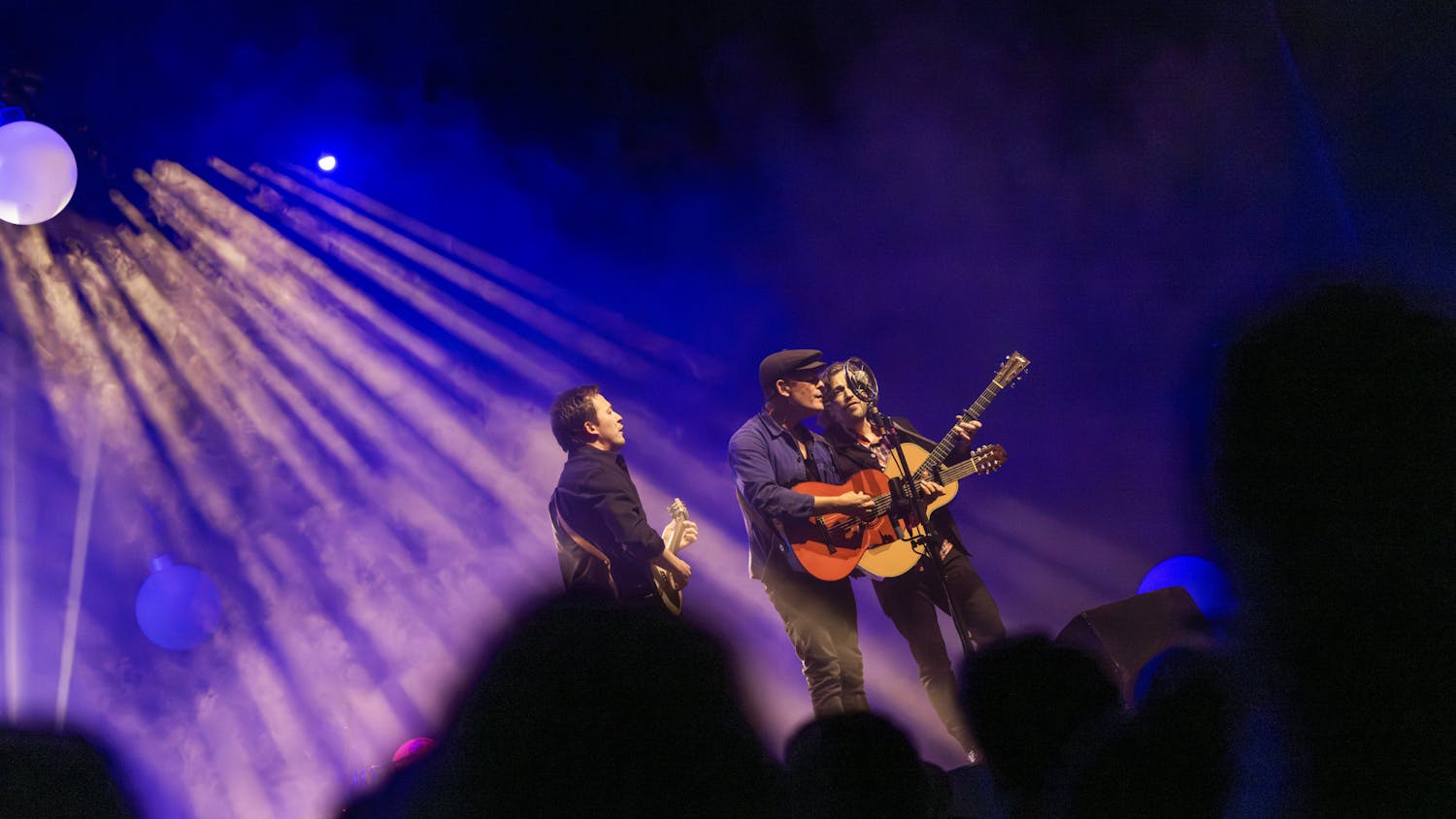In Apostle Of Hustle, Broken Social Scene's lead guitarist, Andrew Whiteman, has finally found the perfect outlet to sport his breathy vocals. Formed in 2001, Apostle is heavily influenced by the music of Whiteman's country of origin, Cuba, and the Toronto-based indie music scene where he currently resides. But rather than evoking a toothless hockey player playing trumpet in a smoky mambo club, AOH pulls off an amazingly well-synthesized brand of noise.
On National Anthem of Nowhere, AOH's Cuban-Canadian sound manifests in shorter, more melodic songs compared to the listening-intensive jams of their first album, Folkloric Feel. Each track packs a variety of sounds, constantly shifting and developing different musical motifs while staying focused. This coherency results from a Latin emphasis on intricate rhythms coupled with Whiteman's radiantly precise guitar playing. It also helps to have a plethora of able friends to call upon to collaborate. Ironically, the use of this pool of talent could also be what limits AOH growth as an individual entity.
Although Whiteman's concomitant side project possesses a unique sound, the strong influences of other bands hamper a definitive vibe. There are too many songs like "Cheap Like Sebastien" that echo BSS's tendencies of placing a high female voice - in this case BSS alum Lisa Lobsinger - above the register of the instruments. Though, to their credit, AOH takes a unique approach on a couple of their songs, such as the application of the "more guitars are better" credo to a Latin genre that typically ignores the guitar altogether.
"Rafaga", the band's noble attempt at a Buena Vista Social Club emulation, embodies some of the strongest creative ideas that suggest that a Canadian-Cuban fusion could be a good thing. Although AOH lacks the authenticity of Buena Vista Social Club or the overwhelming walls of sound of BSS on Anthem, it is an admirable and musical synthesis that is most definitely social.






